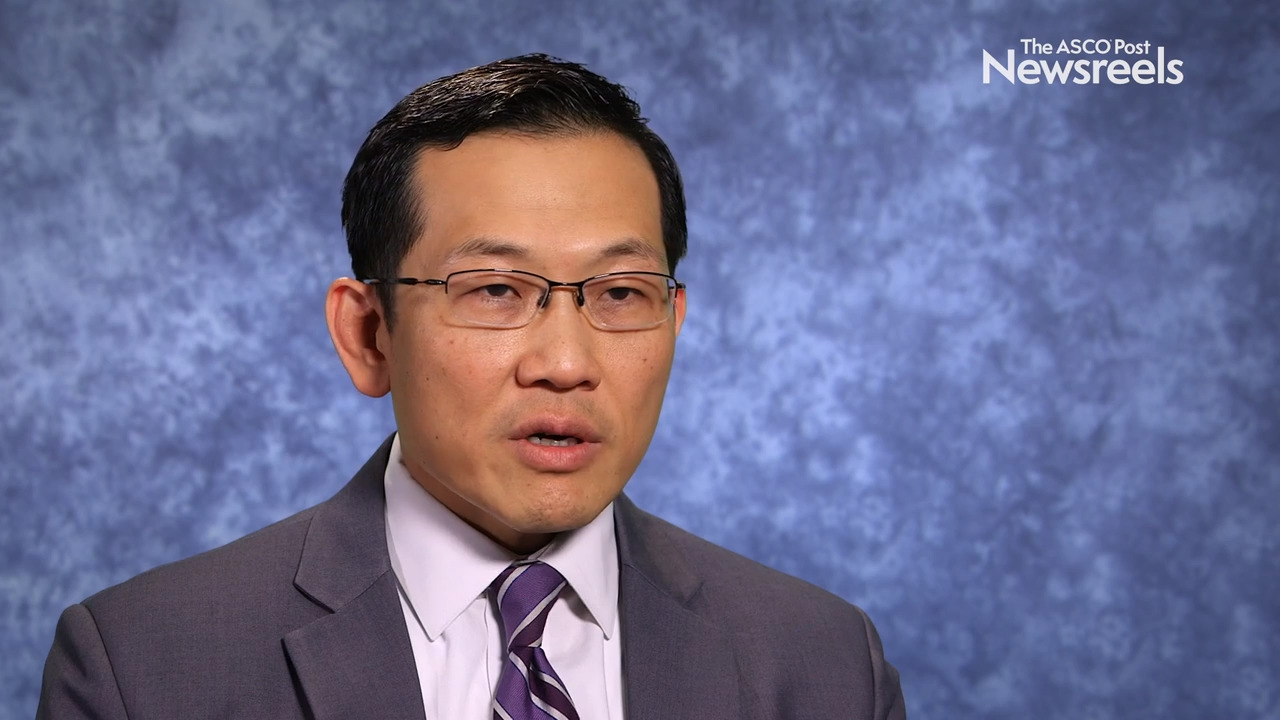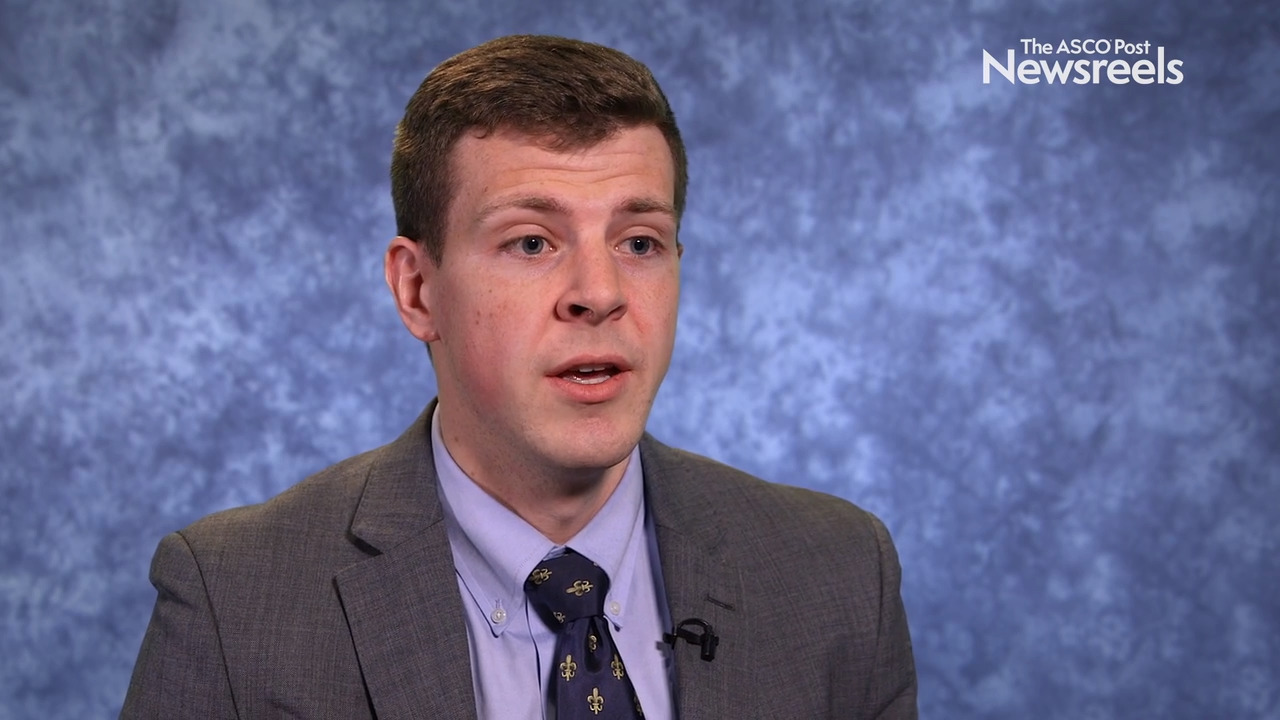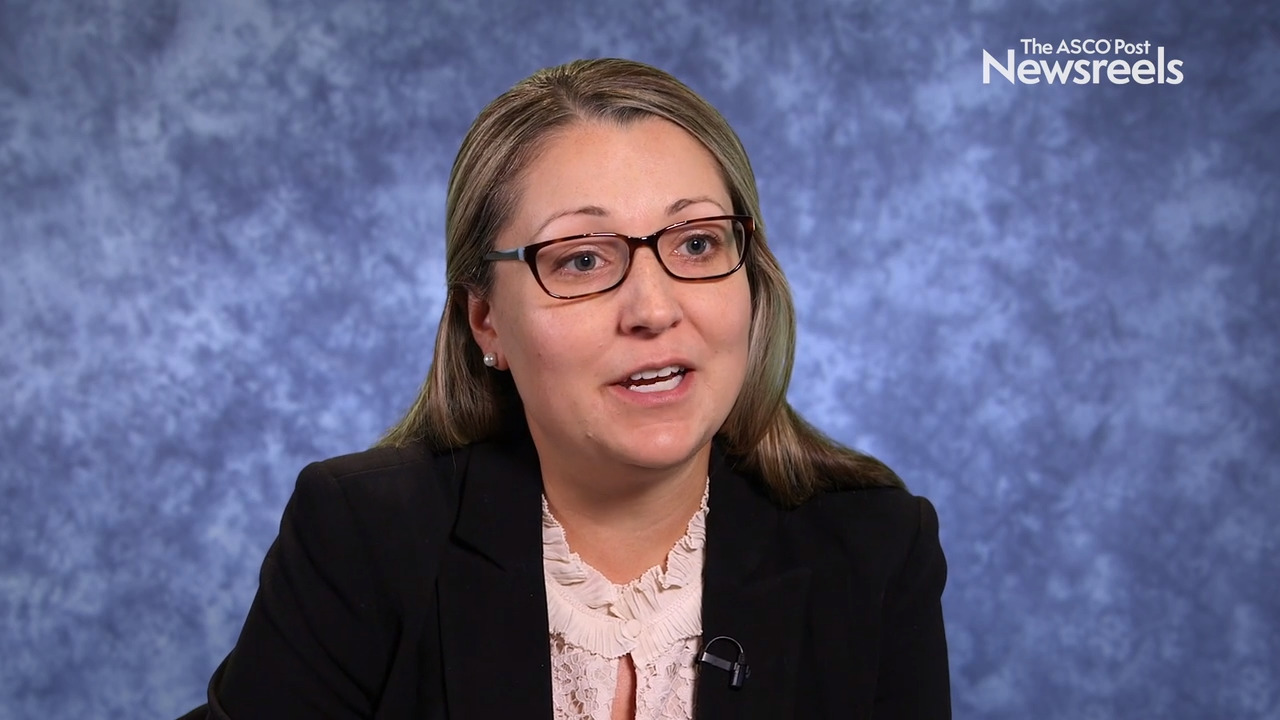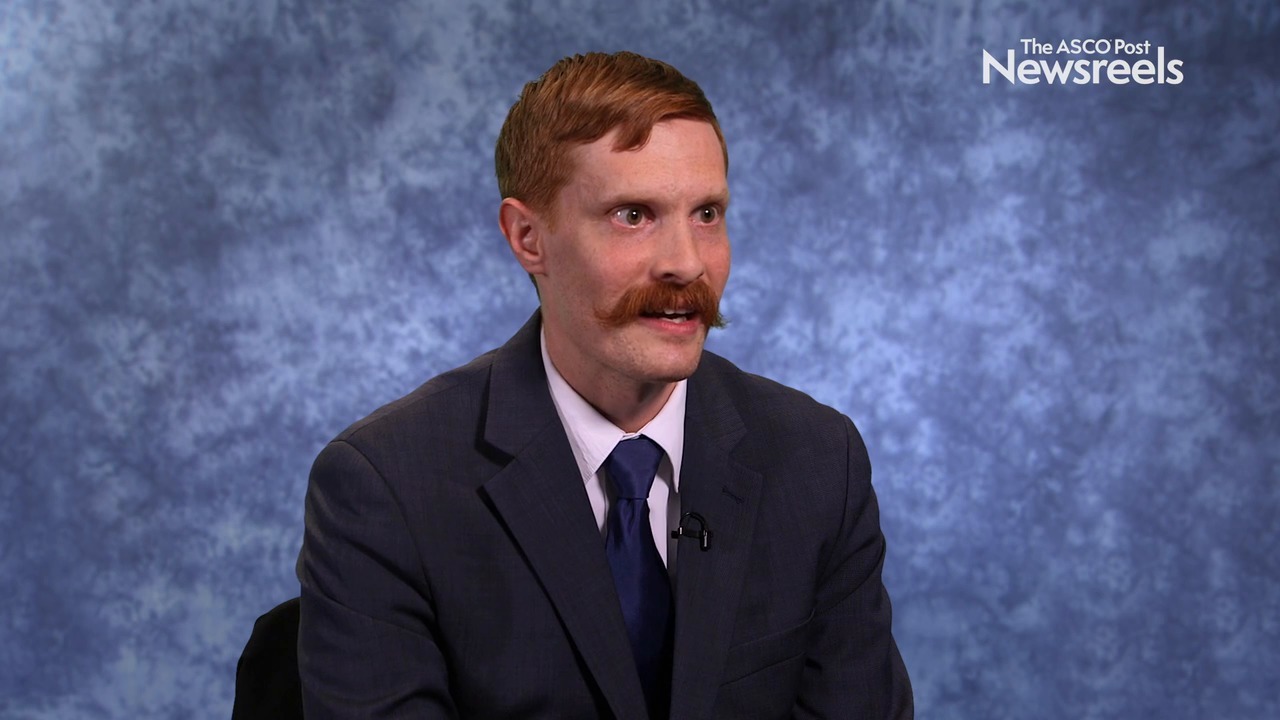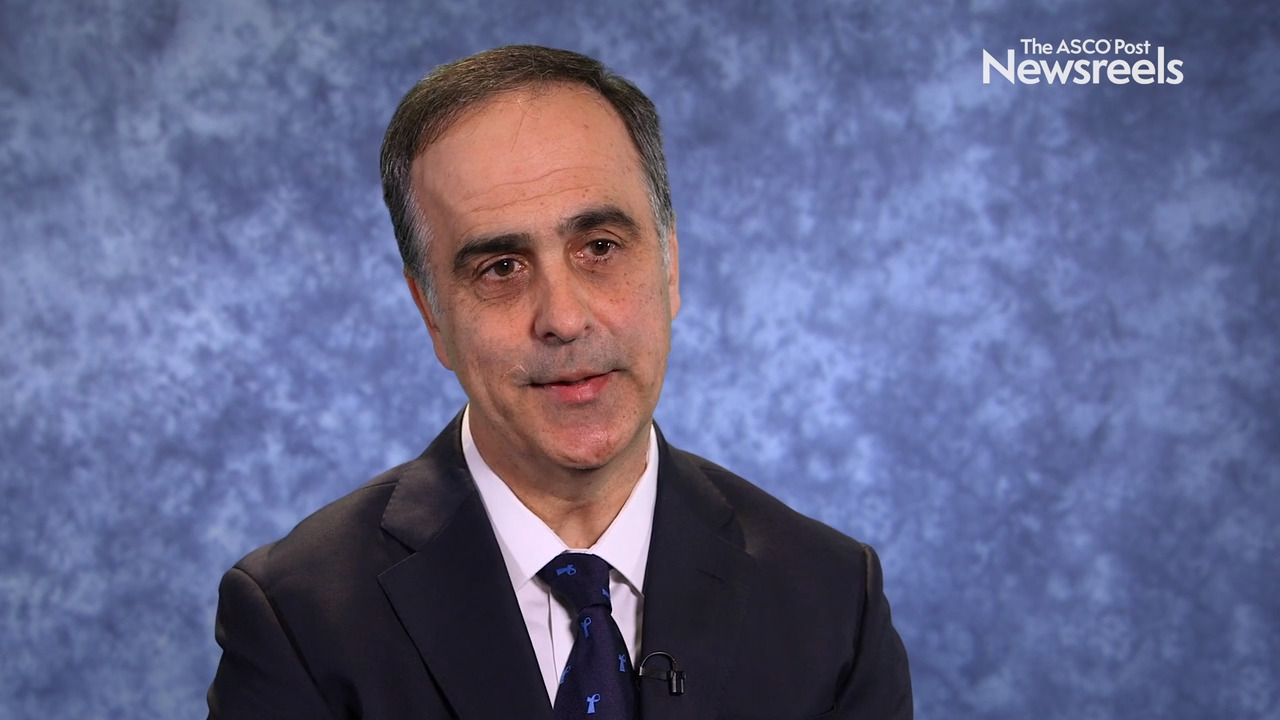Daniel M. Trifiletti, MD, on Optimizing Whole-Brain Radiotherapy Dose and Fractionation for Patients With Brain Metastases
2019 ASTRO Annual Meeting
Daniel M. Trifiletti, MD, of the Mayo Clinic, discusses study findings showing that, between two different radiation doses (30 Gy/10 fractions vs 37.5 Gy/15 fractions), there was no difference in the time to cognitive failure, tumor control, or overall survival for patients with brain metastases (Abstract 19).
Steven H. Lin, MD, PhD, of The University of Texas MD Anderson Cancer Center, discusses phase II findings that showed proton beam therapy improved total toxicity burden score with no difference in progression-free survival when compared with intensity-modulated radiation treatment (Abstract LBA2).
Justin Barnes, MS, of the St. Louis University School of Medicine, discusses his findings on the risk of suicide, which is higher in patients with cancer than in other adults but can be reduced by health policy interventions, including components of the Affordable Care Act (Abstract LBA9).
Erica H. Bell, PhD, of The Ohio State University, discusses phase III findings from a prognostic and predictive molecular subgroup analysis of radiotherapy vs radiotherapy plus procarbazine/lomustine/vincristine in high-risk low-grade gliomas (Abstract 161).
Ryan Phillips, MD, PhD, of Johns Hopkins Medical Institutions, discusses phase II findings suggesting that treatment with stereotactic ablative radiation significantly decreased the risk of disease progression at 6 months and increased progression-free survival (Abstract LBA3).
Andrew Kneebone, MD, of Royal North Shore Hospital, discusses phase III study findings showing that at 5 years, biochemical control was similar between adjuvant and early salvage radiotherapies, the latter sparing half of the men potential side effects of radiotherapy without any significant compromise in outcome (Abstract 77).
